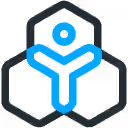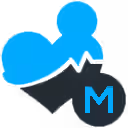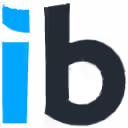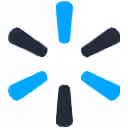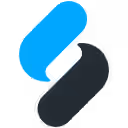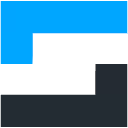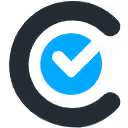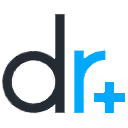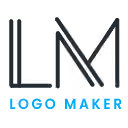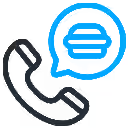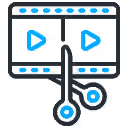Do you like technology and want to use it to help people stay healthy? Maybe you want to create a healthcare mobile app development that can help doctors and nurses do their jobs in an effective way. Or maybe you want to make fitness apps even more awesome!
Whatever your interest, there are lots of ways you can use your skills to make a difference in the medical world. With the beginning of smartphones and wearables, many mobile app development apps have made healthcare more efficient, accessible, and cost-effective.
However, building a successful healthcare app is a quite challenging task. It requires a thorough understanding of the healthcare industry, market needs, and regulatory needs.
The most common reasons for the demand for healthcare app development are:
- Easy to access healthcare services
- Booming digital transformation in the healthcare industry
- Higher access to healthcare services online
- Health tracking and monitoring through medical apps in a better way
In this in-depth guide, we will provide a step-by-step roadmap for founders on how to build a successful healthcare app.
From identifying a healthcare app idea to maintaining and upgrading the app, we will cover all the essential factors of building a healthcare app that solves real problems and helps enhance patients’ lives.
Without wasting your valuable time let’s start with us to get all your answers!
Table of Contents
What is Healthcare Mobile App Development?
Healthcare mobile app development refers to the process of developing mobile applications or software solutions specifically designed for the healthcare industry.
These apps are developed to manage different healthcare requirements, enhance operational efficiency, improve patient care, and provide convenient access to medical services and information.
This mobile application development is also developed to enhance patient care, improve communication between healthcare providers and patients, streamline administrative tasks, and promote overall health and wellness. Healthcare mobile app development offers to design user-friendly interfaces, integrate secure data storage and transmission, and implement features like telemedicine consultations, medication management, appointment scheduling, and health tracking.
Developers must also ensure compliance with healthcare regulations and standards to protect patient privacy and maintain data security.
The goal of healthcare app development is to leverage technology to enhance healthcare delivery, accessibility, and patient outcomes.
Different Types of Healthcare Mobile Applications

Many medical app development companies focus to build different types of apps including
Telemedicine Apps: These apps allow patients to consult with healthcare professionals remotely, through video calls or chat platforms. They facilitate virtual doctor visits, prescription refills, and remote monitoring of patients’ vital signs.
Health and Fitness Apps: These apps focus on promoting general well-being and healthy lifestyles. They often include features such as fitness tracking, diet monitoring, sleep analysis, and meditation guides.
Medication Management Apps: These apps help patients manage their medications, including dosage reminders, pill identification, and medication history tracking. They can also facilitate prescription refills and provide information about potential drug interactions.
Electronic Health Record (EHR) Apps: These apps allow healthcare providers to access and update patients’ medical records electronically. They improve the efficiency and accuracy of record-keeping, enable secure data sharing between healthcare professionals, and empower patients to access their own health information.
Appointment Scheduling Apps: These apps simplify the process of booking and managing appointments with healthcare providers. They often include features such as real-time availability, automated reminders, and the ability to reschedule or cancel appointments.
Medical Education and Reference Apps: These apps provide healthcare professionals with access to medical literature, reference materials, clinical guidelines, and educational resources. They can help enhance medical knowledge, support evidence-based decision-making, and facilitate continuous professional development.
Developing healthcare apps involves various stages, including requirements gathering, design, development, testing, and deployment. It is important to ensure compliance with relevant regulations like HIPAA (Health Insurance Portability and Accountability Act) in the United States, to protect patient privacy and data security.
Market Facts of Healthcare App Development?
Did you know that many businesses are making apps to help with healthcare? But, did you also know that most of these apps don’t work very well?
That’s because they don’t have a good plan, they are too hard to use, or they don’t really help with medical problems. That is why we need a guide to help us make better healthcare apps.
We will learn why some apps don’t work and how to make sure our apps do work. So, let’s get started!
But first, let’s learn a little bit about the healthcare market.
| Healthcare App Development Statistics |
| Over 325,000 healthcare apps are available in major app stores. |
| The global healthcare app market is projected to reach $111.1 billion by 2025. |
| In 2020, the healthcare mobile app market generated around $40 billion in revenue. |
| The COVID-19 pandemic has accelerated the adoption of telemedicine apps, with a 200% increase in telehealth app downloads in Q1 2020 compared to Q4 2019. |
| The most popular healthcare app categories include fitness and wellness, medical reference, and medication management. |
| According to a survey, 90% of healthcare providers are interested in developing or using mobile apps to engage with patients. |
| In a survey of healthcare app users, 93% reported that mobile apps improved their quality of life, and 70% felt that apps increased their engagement in their own healthcare. |
| The average cost to develop a healthcare app can range from $40,000 to $500,000, depending on the complexity and features required. |
| Patient data security is a top concern in healthcare app development, with 60% of healthcare organizations reporting that data security is their biggest challenge. |
| Artificial intelligence (AI) and machine learning (ML) are increasingly being integrated into healthcare apps to enhance diagnostics, personalized medicine, and predictive analytics. |
These statistics give an overview of the growing significance and impact of healthcare app development in the industry.
However, it is important to note that the numbers mentioned above may vary over time as the healthcare app market continues to evolve and expand.
How Is Healthcare Mobile App Development Different From Medical App Development?

Healthcare app development and medical app development are used interchangeably, as they both involve developing applications for the healthcare industry.
However, there are some subtle differences between the two:
#Healthcare App Development
Focus: Healthcare app development has a broader focus on overall patient care, healthcare delivery, and wellness. It aims to improve patient engagement, communication, and accessibility to healthcare services.
User Base: Healthcare apps target a wide range of users, including patients, caregivers, and individuals interested in wellness and preventive care.
Features: Healthcare apps offer different functionalities such as telemedicine consultations, appointment scheduling, health tracking, medication management, and patient education.
Compliance: Healthcare app development needs compliance with healthcare data privacy regulations, such as HIPAA (in the United States), to ensure the security and privacy of patient information.
#Medical App Development
Focus: Medical app development is more specific and focuses on particular medical disciplines, treatments, or conditions. It aims to provide medical professionals with tools for diagnosis, treatment, and research.
User Base: Medical apps primarily target healthcare professionals, including physicians, nurses, researchers, medical students, and other medical personnel.
Features: Medical apps often provide features like medical reference materials, drug information, clinical decision support systems, medical calculators, and access to medical databases or research studies.
Compliance: While medical apps may also need to handle sensitive patient information, they may have additional compliance requirements depending on the nature of the app, such as FDA regulations for medical devices or clinical trial applications.
In short, healthcare app development services have a broader scope and target a wider audience of users who are looking for general healthcare services, while medical app development tends to focus on specific medical disciplines and serve primarily to healthcare professionals with specialized tools and resources.
Have a quick look at more:
| Healthcare App Development | Medical App Development |
| Focuses on overall healthcare delivery, patient care, and wellness. | Focuses on specific medical disciplines, treatments, or conditions. |
| Aims to enhance patient engagement, communication, and accessibility to healthcare services. | Aims to provide medical professionals with tools for diagnosis, treatment, and research. |
| Covers a huge range of healthcare needs, including telemedicine, wellness tracking, medication management, etc. | Primarily focuses on medical reference, drug information, clinical decision support, etc. |
| Involves patient-centric features like appointment scheduling, health monitoring, and patient education. | Primarily caters to healthcare professionals with features like medical calculators, drug interactions, and medical literature access. |
| Needs integration with electronic health records (EHRs) and compliance with healthcare data privacy regulations. | May involve integration with medical databases, research studies, or clinical guidelines. |
| Targets a broad user base, including caregivers, patients, and general wellness lovers. | Targets healthcare professionals, medical students, researchers, and other medical personnel. |
Use Cases For Healthcare Mobile App Development

There are numerous use cases for healthcare apps that cater to different aspects of patient care, wellness management, and healthcare delivery. Here are some basic use cases of health mobile apps:
1. Virtual Consultations and Telemedicine
Healthcare apps allow patients to have remote consultations with healthcare providers via voice calls, video calls, or messaging. This facilitates access to healthcare services, especially for individuals in remote areas or with fixed mobility.
2. Appointment Scheduling and Reminders
Apps can simplify the process of booking appointments with healthcare providers, sending reminders to patients about upcoming appointments, and allowing them to reschedule if needed.
3. Health Records and Personal Health Information
Healthcare apps can store and manage personal health records, including test results, medical history, allergies, and medications. This allows patients to have their health information available and easily shareable with healthcare providers.
4. Medication Management and Reminders
It can help patients manage their medications by sending reminders for tracking medication intake, and dosage schedules, and providing information about potential drug interactions or side effects.
5. Health and Wellness Tracking
Apps can track different health parameters like sleep patterns, heart rate, activity levels, and nutrition. It enables users to monitor their overall wellness, set health goals, and receive insights and recommendations for healthier living.
6. Chronic Disease Management
Healthcare apps can provide tools for patients with chronic conditions to track symptoms, track vital signs, set medication reminders, and access educational resources for self-management.
7. Mental Health Support
Apps designed for mental health support offer features like stress management techniques, mood tracking, guided meditation, and access to licensed therapists for virtual counseling sessions.
8. Women’s Health
Apps dedicated to women’s health address specific needs such as fertility tracking, pregnancy monitoring, menstrual cycle tracking, breastfeeding support, and access to relevant health information and resources.
9. Health Education and Information
Apps can offer educational content on various health topics, provide first aid guidance, offer essential details about specific diseases or conditions, and promote health awareness and prevention.
10. Emergency Services and Medical Assistance
Healthcare apps can include features like emergency contacts and geolocation services to find nearby hospitals or clinics and provide information about emergency medical procedures.
These use cases demonstrate how healthcare apps can enhance patient engagement, improve access to care, promote preventive measures, and support overall well-being.
How to Develop a Healthcare Mobile App?
| Steps | Description |
| Determine the app’s purpose and target audience | Clearly define the purpose and intended users of the healthcare app. Understand the problem it aims to solve and the target audience it will serve. |
| Conduct market research and competitive analysis | Research the existing healthcare app landscape, identify competitors, analyze their features, and identify gaps or opportunities for differentiation. |
| Plan app features and functionality | Determine the core features and functionalities your healthcare app should have to meet the defined purpose and target audience. Prioritize features based on user needs and create a feature roadmap. |
| Design the user experience and user interface | Make a visually appealing and intuitive user interface (UI) design. Focus on user experience (UX) to ensure ease of use, accessibility, and engagement. |
| Develop the backend infrastructure | Hire healthcare app developers to set up a secure and scalable backend infrastructure to handle data storage, processing, and integration with necessary APIs or third-party services. |
| Build the front-end and implement features | Develop the front-end of the app using the right programming languages and frameworks. Implement the planned features and functionalities, ensuring seamless navigation and performance. |
| Integrate relevant APIs and third-party services | Integrate APIs or third-party services for features like appointment scheduling, telemedicine consultations, payment processing, or health data integration with wearable devices. |
| Implement data security and compliance measures | Ensure data security and compliance with healthcare regulations, such as HIPAA, by implementing appropriate encryption, access controls, and privacy measures. |
| Test and debug the app | Conduct thorough testing to identify and fix any bugs or issues. Perform functional testing, usability testing, and compatibility testing across various devices and platforms. |
| Launch the app and monitor user feedback | Deploy the app to the intended platforms (iOS, Android, web) and gather user feedback. Monitor app performance, and user satisfaction, and iterate based on user feedback. Continuously update and improve the app. |
Examples of Successful Healthcare Mobile Apps
If you want to know how to develop a healthcare app you should analyze some top applications and their features.
Here are some examples of successful healthcare apps along with interesting facts about each app:
| Healthcare App | Interesting Facts |
| 1. 1mg | – Provides online medicine ordering and home delivery
– Offers lab test bookings and teleconsultations – Trusted by millions of users in India for healthcare needs |
| 2. Ada | – AI-powered symptom checker that provides personalized health assessments
– Used by millions worldwide for self-diagnosis |
| 3. MyFitnessPal | – One of the most famous fitness and nutrition apps
– Offers a huge food database and monitors calories |
| 4. Headspace | – Leading meditation and mindfulness app
– Provides sleep aids, guided meditations, and stress management techniques |
| 5. HealthTap | – Offers virtual doctor consultations and medical advice
– Provides 24/7 access to a network of licensed physicians |
| 6. Medscape | – Comprehensive medical resource for healthcare professionals
– Offers medical news, drug information, and clinical tools |
| 7. Curofy | – The largest community of verified doctors in India
– Enables doctors to connect, discuss cases, and share medical knowledge |
| 8. Doximity | – Professional networking app for healthcare providers
– Allows doctors to communicate securely and collaborate on cases |
| 9. Figure 1 | – Medical image sharing platform for healthcare professionals
– Allow doctors to discuss and learn from real-life cases |
| 10. MyChart | – Patient portal app for accessing medical records and managing appointments
– Used by various healthcare systems |
How Much Does it Cost to Build a Healthcare Mobile Application?
The cost of healthcare mobile app development can differ significantly depending on some factors, such as the complexity of the app, the features and functionality required, the development platform (iOS, Android, web), the location of the development team, and the level of customization required.
Additionally, healthcare app development companies also consider some facts like design, testing, maintenance, and ongoing updates also contribute to the overall cost.
On average, the cost of developing a healthcare app can range from about $50,000 to $500,000 or more. However, it is important to note that this is just a basic estimate, and the actual cost can be higher or lower based on the specific needs of the project.
To get a more accurate cost estimate, it is recommended to consult with a healthcare mobile app development company or teams. They can assess your specific requirements, understand the scope of the project, and deliver a detailed breakdown of costs tailored to your needs.
However, here’s a general idea of the major cost components in healthcare app development:
| Cost Component | Percentage of Total Cost |
| Planning and Design | 10% – 15% |
| Development | 50% – 70% |
| Testing and Quality Assurance | 10% – 15% |
| Deployment and Launch | Varies |
| Maintenance and Updates | Varies |
Final Thought
Creating a successful healthcare mobile app can be a significant challenge, but with careful planning and execution, it can also be a highly rewarding experience.
By following the steps outlined in this in-depth guide, you can ensure that your healthcare mobile app satisfies the unique requirements of your users in a secure, compliant, and user-friendly manner.
Remember to stay up-to-date with the latest industry trends and regulations, and continuously seek feedback from your users to refine and enhance your app over time.
With the proper approach, your healthcare mobile app can make a significant impact in the healthcare industry and in people’s lives.
FAQ
1. What are the main challenges in healthcare mobile app development?
Some of the primary challenges in healthcare mobile app development include security and user privacy, compliance, integration with existing healthcare systems, and ensuring that the app meets the unique requirements of the users.
2. What are the essential key features of a healthcare mobile app?
The exciting features of a healthcare mobile app may include patient monitoring, appointment scheduling, medication tracking, remote consultations, access to medical records, and health education resources.
3. How can I ensure that my healthcare mobile app is user-friendly and accessible to everyone?
To ensure that your healthcare mobile app is user-friendly and accessible to everyone, you should follow design principles that prioritize user experience and accessibility. It may include designing intuitive navigation, using clear and simple language, providing alternative text for images, and accommodating users with disabilities or impairments.



























































